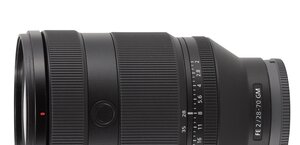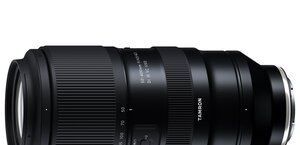Pentax smc FA 35 mm f/2 AL
3. Build quality
The photo below helps us to realize how small the Pentax 2/35 really is – it is positioned there next to a 18-55 mm II kit lens and a Sigma 1.4/30 ( a Pentax mount version).
 |
Please Support UsIf you enjoy our reviews and articles, and you want us to continue our work please, support our website by donating through PayPal. The funds are going to be used for paying our editorial team, renting servers, and equipping our testing studio; only that way we will be able to continue providing you interesting content for free. |
- - - - - - - - - - - - - - - - - - - - - - - - - - - - - - - - - - - - - - - - - - - - - - - -
Despite small dimension and weight, the build quality of the tested lens is good. We deal here with a metal mount and a skeleton filled with black plastics of high quality. Immediately after the mount, on the barrel, we’ll find a ribbed aperture ring. Above, there is a clear distance scale in feet and meters behind a window.
 |
Unfortunately the constructors didn’t come up with the idea of installing a fully-fledged manual focus ring. If you want to set the focus manually you must fight with a narrow strip surrounding the front element system, which is at the same time a 49 mm filter thread (the smallest in this class of equipment) and outside, a mount for a lens hood. Rival Canon and Nikon lenses boast fully-fledged manual focus rings.
What’s interesting, the 35 mm lenses, showed by us in the chart, differ greatly when it comes to the optical construction. The Zeiss features the biggest number of elements (9), then comes the Canon (7) and the Pentax, which consists of 6 elements in 5 groups. The Nikkor has the same number of elements as the Pentax. Inside the lens, we also find a circular aperture with 6 diaphragm blades which can be closed down to f/22.

The buyer gets both caps and a petal-type lens hood included in box.
 |






